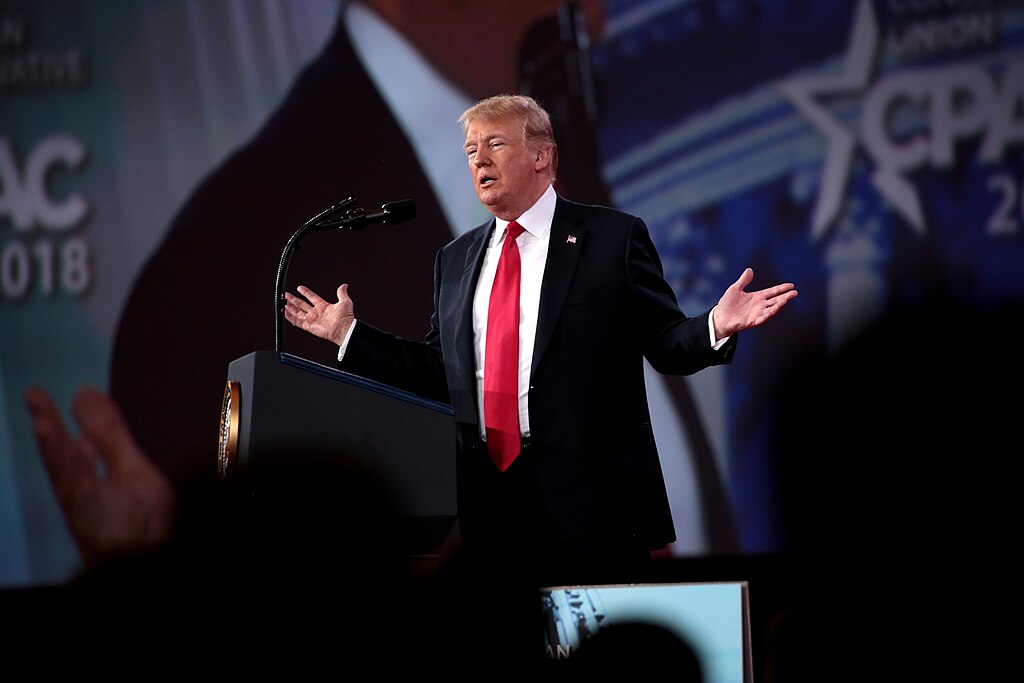President-elect Donald Trump's transition team intends to withdraw the United States from the World Health Organization (WHO) on January 20, the day of his inauguration, according to reports from the Financial Times. This move would sever ties with the leading international public health agency, potentially undermining global health initiatives and pandemic response efforts.
Implications of Immediate Withdrawal
The United States is the largest single donor to the WHO, contributing approximately 16% of its funding in the 2022-2023 period. An abrupt withdrawal would create a significant financial shortfall, impairing the organization's capacity to address health emergencies, including disease outbreaks and humanitarian crises. Lawrence Gostin, a professor of global health law at Georgetown University, described the plan as "catastrophic for global health," warning that it would leave a leadership void unlikely to be filled by other nations.
Divergent Views Within the Transition Team
Within Trump's transition team, opinions differ regarding the WHO. Some members advocate for immediate withdrawal, citing mistrust and a desire to reverse President Joe Biden's decision to rejoin the organization on his first day in office in 2021. Others propose remaining within the WHO to pursue internal reforms. Ashish Jha, former White House COVID-19 response coordinator and dean of Brown University's School of Public Health, noted that those favoring withdrawal appear to be prevailing in the internal debate.
Potential Geopolitical Consequences
Experts caution that U.S. withdrawal could enable other nations, particularly China, to expand their influence within the WHO. Gostin warned that such a move would cede leadership to China, potentially affecting the organization's priorities and policies. Additionally, the absence of U.S. involvement might hinder global coordination in health crises, vaccine distribution, and disease surveillance, ultimately compromising international public health security.
Historical Context
This is not the first instance of the Trump administration seeking to exit the WHO. In 2020, amid the COVID-19 pandemic, President Trump announced intentions to withdraw, accusing the organization of being overly influenced by China and mishandling the outbreak. However, the process was halted when President Biden restored U.S. membership upon taking office in 2021.
Public Reaction and Social Media Discourse
The announcement has elicited a spectrum of reactions on social media platforms. Twitter user @GlobalHealthAdvocate expressed concern, stating, "Withdrawing from the WHO during ongoing health challenges is a reckless decision that endangers us all." In contrast, @SovereigntyFirst supported the move, tweeting, "It's time for the U.S. to prioritize its own health policies without external interference."
Another user, @PandemicPreparedness, noted, "Global health threats require collaboration; exiting the WHO isolates the U.S. from critical partnerships." Conversely, @FiscalConservative argued, "Our taxpayer dollars shouldn't fund organizations that don't align with American interests."
Additionally, @InfectiousDiseaseExpert emphasized the importance of international cooperation: "Diseases know no borders; disengaging from the WHO hampers our ability to respond effectively." Meanwhile, @AmericaFirstHealth commented, "We can establish our own health initiatives without relying on flawed international bodies."
As the inauguration approaches, the Trump administration's plan to withdraw from the WHO signals a significant shift in U.S. engagement with global health governance. The decision has sparked debate over its potential impact on international health initiatives and the United States' role in addressing transnational health challenges. The long-term consequences of this policy change will unfold as the new administration implements its agenda.



 ICE Hiring Surge Raises Vetting Concerns Amid Rapid Expansion
ICE Hiring Surge Raises Vetting Concerns Amid Rapid Expansion  U.S. Signals Openness to North Korea Talks as Kim Jong Un Calls for Shift in “Hostile Policy”
U.S. Signals Openness to North Korea Talks as Kim Jong Un Calls for Shift in “Hostile Policy”  UK Government Agrees to Release Documents on Peter Mandelson Appointment Amid Epstein Scandal
UK Government Agrees to Release Documents on Peter Mandelson Appointment Amid Epstein Scandal  IMF Urges U.S. to Cut Fiscal Deficit to Reduce Trade and Current Account Gaps
IMF Urges U.S. to Cut Fiscal Deficit to Reduce Trade and Current Account Gaps  Melania Trump to Chair UN Security Council Meeting as U.S. Assumes Presidency
Melania Trump to Chair UN Security Council Meeting as U.S. Assumes Presidency  U.S. Plans 4,500 Monthly Refugee Admissions for White South Africans Amid Policy Debate
U.S. Plans 4,500 Monthly Refugee Admissions for White South Africans Amid Policy Debate  Ecuador Raises Tariffs on Colombian Imports to 50% Amid Border Security Dispute
Ecuador Raises Tariffs on Colombian Imports to 50% Amid Border Security Dispute  Trump Media Weighs Truth Social Spin-Off Amid $6B Fusion Energy Pivot
Trump Media Weighs Truth Social Spin-Off Amid $6B Fusion Energy Pivot  Keir Starmer Faces Crucial By-Election Test in Manchester Amid Tight Three-Way Race
Keir Starmer Faces Crucial By-Election Test in Manchester Amid Tight Three-Way Race  UN Rapporteur Francesca Albanese Condemns “Toxic” Attacks Amid Calls for Resignation
UN Rapporteur Francesca Albanese Condemns “Toxic” Attacks Amid Calls for Resignation  Venezuela Oil Exports to Reach $2 Billion Under U.S.-Led Supply Agreement
Venezuela Oil Exports to Reach $2 Billion Under U.S.-Led Supply Agreement  Pentagon to Halt Ivy League Programs for U.S. Military Officers Starting 2026
Pentagon to Halt Ivy League Programs for U.S. Military Officers Starting 2026  Russia Downs 220 Ukrainian Drones in Major Air Defence Operation, Moscow Targeted
Russia Downs 220 Ukrainian Drones in Major Air Defence Operation, Moscow Targeted  Trump Floats “Friendly Takeover” of Cuba as Rubio Reportedly Engages in Talks
Trump Floats “Friendly Takeover” of Cuba as Rubio Reportedly Engages in Talks  Maduro Seeks Dismissal of U.S. Drug Trafficking Case, Citing Sanctions Interference
Maduro Seeks Dismissal of U.S. Drug Trafficking Case, Citing Sanctions Interference  Federal Judge Blocks Virginia Social Media Age Verification Law Over First Amendment Concerns
Federal Judge Blocks Virginia Social Media Age Verification Law Over First Amendment Concerns  NYC Mayor Zohran Mamdani Meets President Trump to Tackle Housing Crisis and ICE Detentions
NYC Mayor Zohran Mamdani Meets President Trump to Tackle Housing Crisis and ICE Detentions 




























